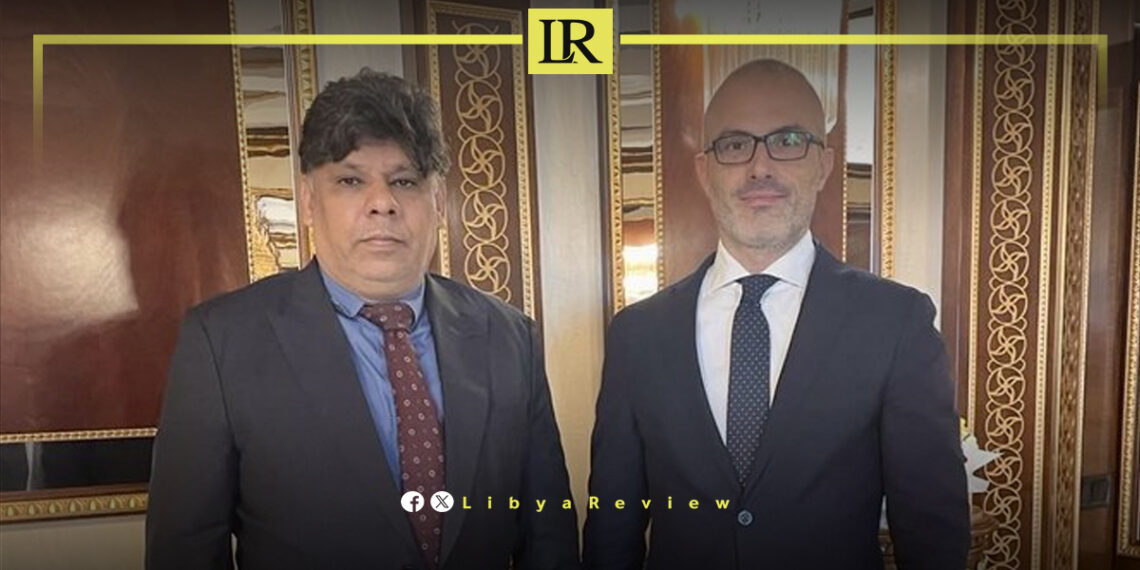The European Union (EU) Ambassador to Libya, Nicola Orlando, held a meeting today in Tripoli with Libyan Attorney General Al-Siddiq Al-Sour to discuss strengthening EU support for the Attorney General’s Office.
Ambassador Orlando highlighted the EU’s commitment to providing technical assistance and capacity-building support, including resources for the Criminal Research and Training Center.
Reaffirming the EU’s dedication to promoting transparency, accountability, and oversight, Orlando emphasized the critical role of the Attorney General’s Office in ensuring Libya’s stability and fostering prosperity for current and future generations.
This collaboration reflects the EU’s broader commitment to supporting Libya’s governance and judicial systems during its ongoing transition.
Libya has been in chaos since a NATO-backed uprising toppled longtime leader Muammar Gaddafi in 2011. The county has for years been split between rival administrations.
Libya’s economy, heavily reliant on oil, has suffered due to the ongoing conflict. The instability has led to fluctuations in oil production and prices, impacting the global oil market and Libya’s economy.
The conflict has led to a significant humanitarian crisis in Libya, with thousands of people killed, and many more displaced. Migrants and refugees using Libya as a transit point to Europe have also faced dire conditions.
The planned elections for December 2021 were delayed due to disagreements over election laws and the eligibility of certain candidates. This delay has raised concerns about the feasibility of a peaceful political transition.
Despite the ceasefire, security remains a significant concern with sporadic fighting and the presence of mercenaries and foreign fighters. The unification of the military and the removal of foreign forces are crucial challenges.


